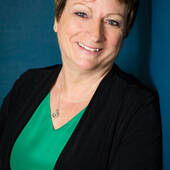Closing Costs
One of the most informative, easy-to-read explanations of closing costs that I have ever read....
Good job, Tammy! :)
Closing Costs
The bundle of fees associated with the buying or selling of a home are called closing costs. Certain fees are automatically assigned to either the buyer or the seller; other costs are either negotiable or dictated by local custom.
Buyer closing costs
When a buyer applies for a loan, lenders are required to provide them with a good-faith estimate of their closing costs. The fees vary according to several factors, including the type of loan they applied for and the terms of the purchase agreement. Likewise, some of the closing costs, especially those associated with the loan application, are actually paid in advance. Some typical buyer closing costs include:
• The down payment
• Loan fees (points, application fee, credit report)
• Prepaid interest
• Inspection fees
• Appraisal
• Mortgage insurance (typically 1 years premium plus an escrow of 2 months)
• Hazard insurance (typically 1 years premium plus an escrow of 2 months)
• Title insurance
• Documentary stamps on the note
Seller closing costs
If the seller has not yet paid for the house in full, the seller's most important closing cost is satisfying the remaining balance of their loan. Before the date of closing, the escrow officer will contact the seller's lender to verify the amount needed to close out the loan. Then, along with any other fees, the original loan will be paid for at the closing before the seller receives any proceeds from the sale. Other seller closing costs can include:
• Broker's commission
• Transfer taxes
• Documentary Stamps on the Deed
• Title insurance
• Property taxes (prorated)
Negotiating Closing Costs
In addition to the sales price, buyers and sellers frequently include closing costs in their negotiations. This can be for both major and minor fees. For example, if a buyer is particularly nervous about the condition of the plumbing, the seller may agree to pay for the house inspection. Likewise, a buyer may want to save on up-front expenditures, and so agree to pay the seller's full asking price in return for the seller paying all the allowable closing costs. There's no right or wrong way to negotiate closing costs; just be sure all the terms are written down on the purchase agreement.
Proration’s
At the closing, certain costs are often prorated (or distributed) between buyer and seller. The most common prorations are for property taxes. This is because property taxes are typically paid at the end of the year for which they were assessed. Thus, if a house is sold in June, the sellers will have lived in the house for half the year, but the bill for the taxes won't come due until the following year. To make this situation more equitable, the taxes are prorated. In this example, the sellers will credit the buyers for half the taxes at closing.
Closing costs are usually around 3-4% of the purchase price. I hope this helps you to better understand some of the closing costs. Please contact me with any questions.


Comments(0)